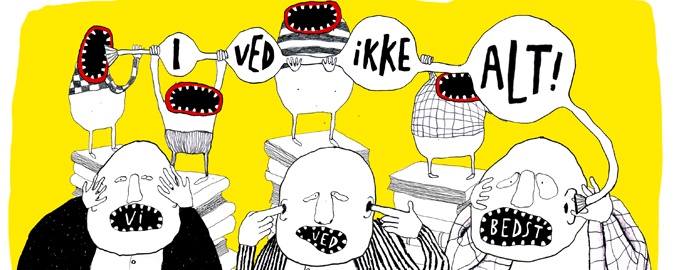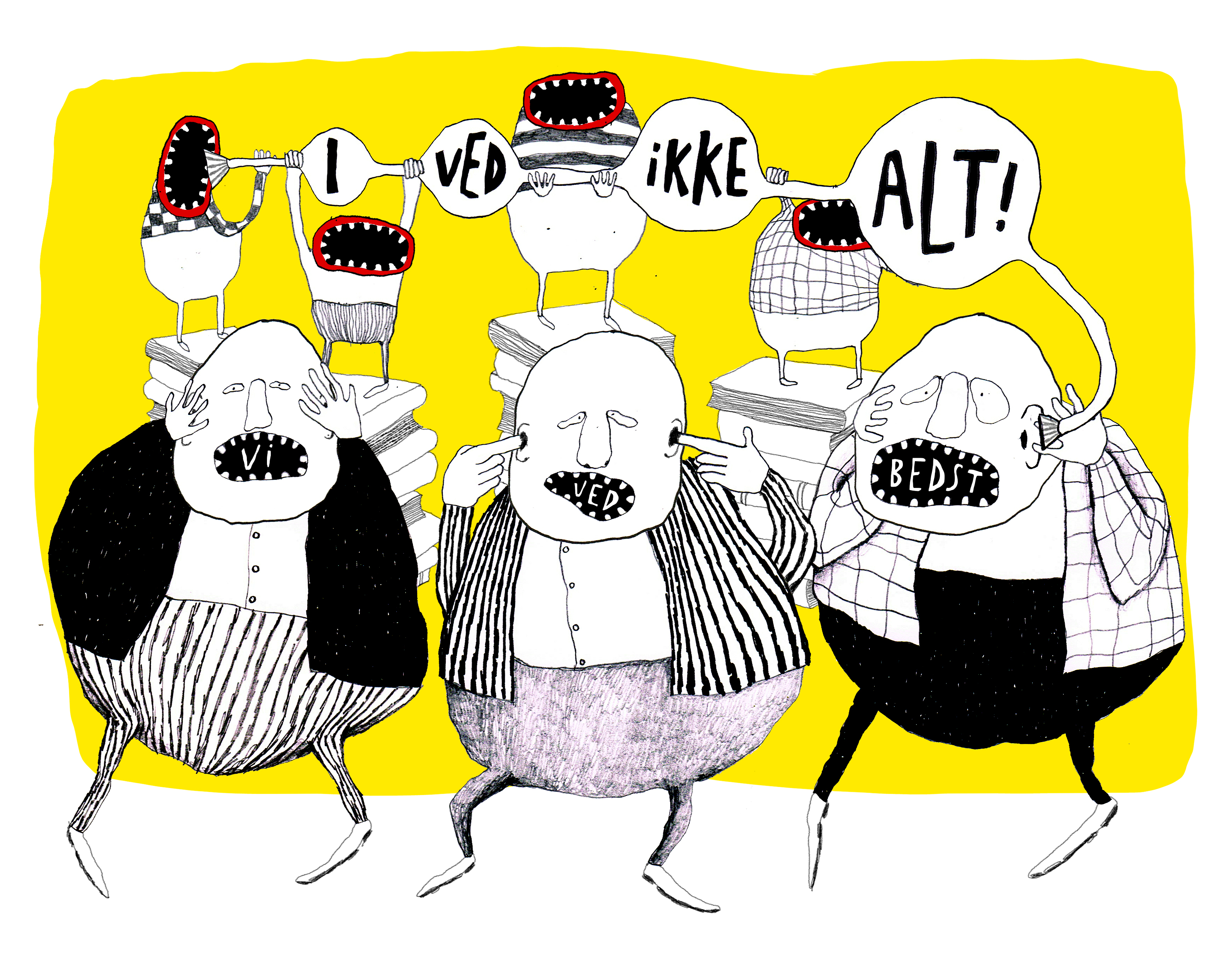The University Act prevents us from having any influence
Feature article by Benjamin Bilde Boelsmand an Heidi Klokker, student representatives on the university board


We have now been members of the board for one and two years respectively, and this is what we have learned: it’s not easy to make the management and the rest of the board listen to what the students say.
The 2003 University Act meant that the majority of board members now come from the business community. Those of us who know about everyday life at the university are in the minority. But the university board is supposed to listen to what the students say.
We’re the whole reason for the existence of the university. We’re the researchers of the future, and the future employees of companies in the private or public sector. Our advice is vital if decisions are to be made on a fully informed basis.
However, the fact that the power lies in the hands of board members from outside the university does not mean that our work as student representatives is in vain.
We have actually managed to influence decisions which could have had serious repercussions for the average student. For instance, a majority of the board wanted to set up special elite programmes for selected students. The students concerned were to be selected in their first semester, and would be offered special teaching, contact with researchers and links to the business community.
The idea seemed attractive at first sight, and it might have been great for the few students selected. But as representatives of ALL the students, we decided to focus on the broad student body as a whole. So we voted against the strategy, and have subsequently worked to support more inclusive programmes instead.
Thanks to the exertion of huge pressure, we have managed to create a range of programmes in which anyone with sufficient motivation can take part. In other words, we have managed to reverse the decision to introduce an elitist system, and have helped to create an extra programme for the benefit of all students.
We have also put another issue on the agenda: how to improve the qualifications of our teachers and find ways of ensuring that we don’t die of boredom in the classroom. The best teaching at university is provided by expert researchers who are capable of communicating their knowledge to the students. In our view, far too many of our good researchers lack adequate teaching skills. We are currently discussing the improvement of these teaching skills with the vice-deans for education. Even though we have not yet completed these discussions and the problem has not yet been discussed by the board, we have already created the basis for increased collaboration and future decisions.
We can’t change the way the university works; but we can influence a wide range of decisions. So it is important that we students demonstrate our support for the university election and give the student representatives a solid mandate on the board.
We must show the management and the rest of the board that we will not permit the University Act to stand in the way of our views. We must also show the management and the rest of the board that we want real influence. And we must show them that there are LOTS OF US that want to have this influence!
Translated by Nicholas Wrigley

